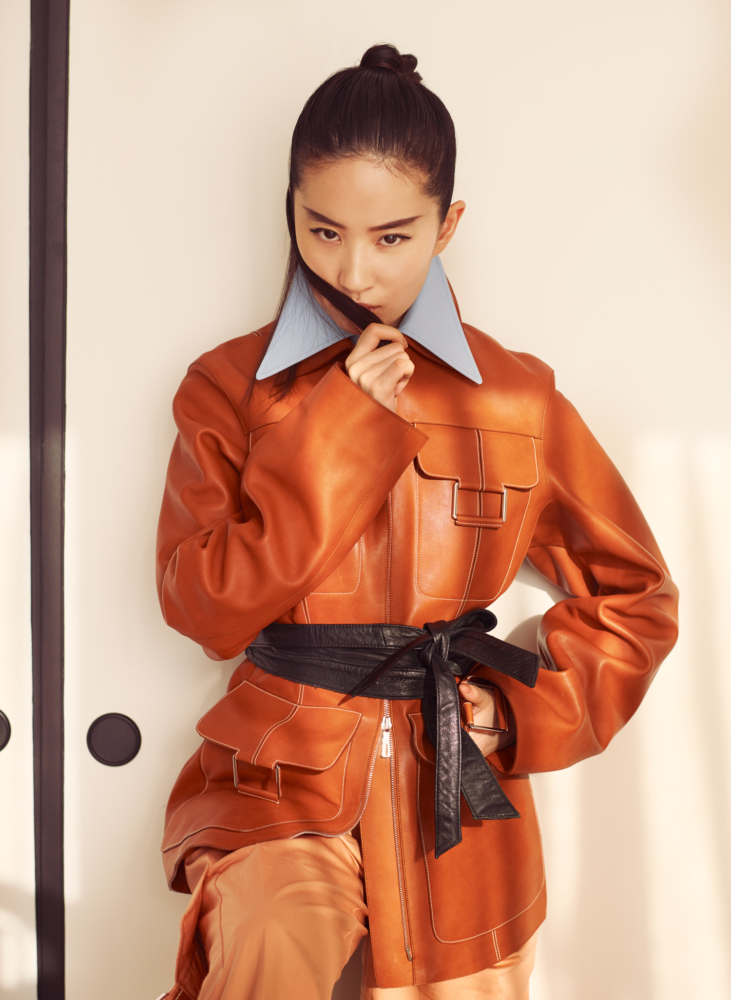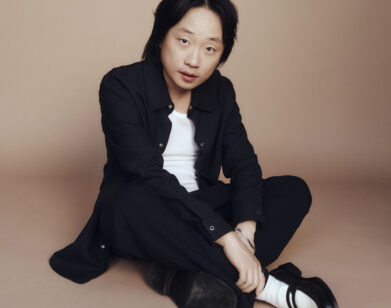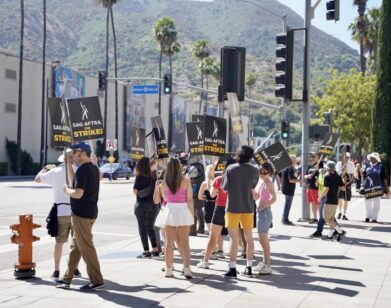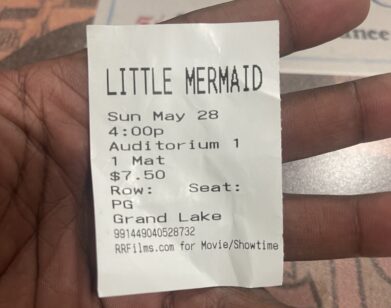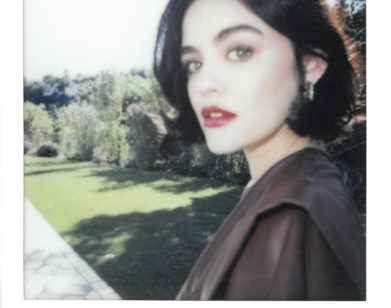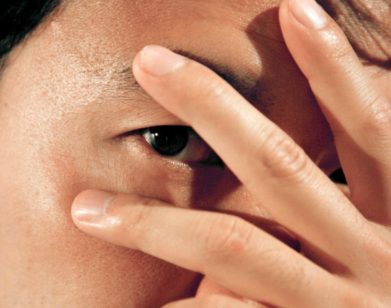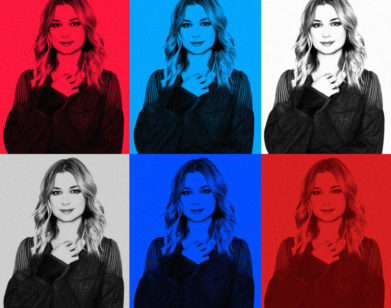Yifei Liu and Awkwafina Are Making Plans to Hang Out
Throughout the 1990s, during the so-called “Disney Renaissance,” Hollywood’s touchstone animation studio churned out a wave of modern classics: Beauty and the Beast, Aladdin, The Lion King, Pocahontas, The Hunchback of Notre Dame. But when Mulan came around in 1998, toward the end of Disney’s unprecedented run, the groundbreaking epic, based on the Chinese legend of Hua Mulan, was clearly something new. Centered on a teenage girl who presents as a boy to join the army and defend her kingdom from Northern invaders, Mulan set a new benchmark for Asian representation while also challenging gender roles with a refreshingly badass Disney heroine who knew her way around a combat weapon.
When it was time to cast the lead in this spring’s live-action Mulan remake, Disney auditioned more than a thousand young women across five continents before finding Yifei Liu. Already a star in her native China, the 32-year-old actor, known as “Fairy Sister” to her fans, has been performing since she was a kid. But as she tells the recent Golden Globe winner Awkwafina, the challenge of bringing an iconic animated character to life was a whole new world.
———
AWKWAFINA: Hi, Yifei. How are you?
YIFEI LIU: I’m good. How are you, Awkwafina?
AWKWAFINA: I’m good. It’s so nice to meet you, man. Big fan. You’re awesome.
LIU: Thank you. You are awesome.
AWKWAFINA: Oh, thanks. Congrats on everything.
LIU: Congrats on you.
AWKWAFINA: Thank you! I’m really excited to see… What?
LIU: Sorry, there’s a bit of a delay on the line.
AWKWAFINA: Where are you calling from?
LIU: In the office at Disney.
AWKWAFINA: Oh, you’re in the States?
LIU: I can’t hear you. I’m in the what?
AWKWAFINA: The States! You’re in the States!
LIU: Oh, yeah. I’m in L.A.
AWKWAFINA: As a Chinese kid, did you grow up with the original Mulan?
LIU: Yes, I’ve seen the animation.
AWKWAFINA: She is one of the most badass princesses, right? What was your relationship to Disney movies in general?
LIU: As a child, they’re all fairy tales. But by the time you’re an adult, you get more out of them. You understand more from the story, the surface and the deeper parts. The messages.
AWKWAFINA: How did you get the part?
LIU: It was two years ago. I got a call asking me if I wanted to audition. I asked myself, “What can I bring to the story?” Even for the audition, I needed to know that I could bring something unique. Ultimately, I was confident enough that I could surprise them.
AWKWAFINA: How has the experience of making Mulan compared to experiences you’ve had making other films?
LIU: Nothing was similar because this moment is so new to me. I think that living in the now is the beginning of the creative process. So for this role, I asked myself, “Are you willing to open up a new door to the unknown?” And then the answer was obviously, “I can’t wait.” I really wanted to know her world—I wanted not only to act like her, I wanted to be her. Acting is such a gift. Wait, what was the question again?
AWKWAFINA: You answered it poignantly. Every movie is different. What was the most challenging part about shooting Mulan?
LIU: Her motivation was love, her love for her father, and her journey of finding out who she truly is. That was my homework, and I would say that it motivated me to prepare myself mentally, but also physically, with a lot of gym stuff, fight training, horse training. But at its core, Mulan is really about the character, the spirit. She is such a famous character, but I also wanted to be myself. It was all about balance and choice. It’s always brave to be yourself.
AWKWAFINA: How do you think Mulan fits in with the recent wave of Asian representation in Hollywood? What do you hope Mulan will mean to young Asian women?
LIU: I was focused mostly on being in the moment because when Mulan makes her choice to join the army, she isn’t thinking that she’s doing some great thing. She’s just going with her instincts. And she knows that everything is possible. Nothing is impossible. No matter where you’re from… Hello? Awkwafina, are you there?
MODERATOR: It sounds like she’s been disconnected. Let’s give her a minute to hop back on the call.
AWKWAFINA: Oh my god, I am so sorry. I’m standing on a street corner and I must have gotten cut off. Wait, what do you hope Mulan will mean to young Asian women?
LIU: It’s important for people to know what they want, to know who they are, to follow their dreams and be the best versions of themselves. That’s something I want them to feel when they see this movie.
AWKWAFINA: Did you find working in America to be different than the Chinese film industry? Or are they the same?
LIU: Movies are magic no matter where they’re made. It’s the same creative journey, even though we speak different languages. It’s about energy.
AWKWAFINA: And that’s a universal language. How do you think Chinese audiences will respond to Mulan? Do you think they’ll see it differently than American audiences?
LIU: I don’t know yet. I hope they like it.
AWKWAFINA: I hope they do, too. What’s your favorite and least favorite thing about being an actor?
LIU: There is nothing that I don’t like about being an actor. It’s been my dream since childhood and it is my choice for now and, I hope, forever.
AWKWAFINA: Are you based fully in L.A. now?
LIU: I’m based in Beijing.
AWKWAFINA: Oh, cool! I love Beijing. I used to live in Wudaokou.
LIU: No way! Wudaokou!
AWKWAFINA: Yeah, I loved it.
LIU: Let’s hang out together.
AWKWAFINA: Yeah, definitely, I’ll give you my info.
LIU: Thank you so much for interviewing me. Bye.
———
Hair: Sami Knight using R+Co at SWA AGENCY
Makeup: Mai Quynh at The Wall Group
Production: Lauren Levinger at Art + Commerce
DigitalTechnician: Maria at D-Factory
Manicure: Tracy Clement at Opus Beauty using Chanel Les Vernis
Photography Assistants: Cory Hackbarth and Carolina Salazar
Fashion Assistant: Shantal Franke

